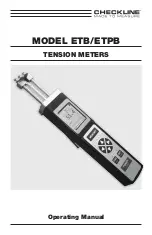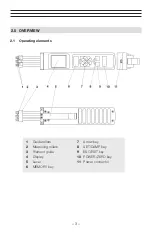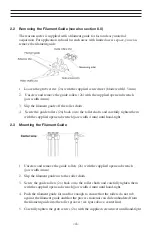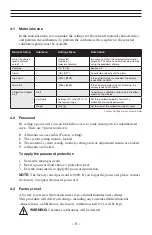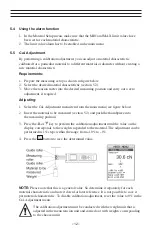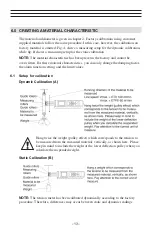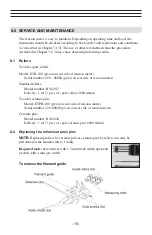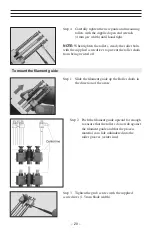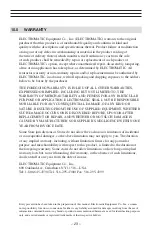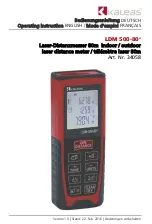
–13 –
6.0 CREATING A MATERIAL CHARACTERISTIC
The material and diameter is given in chapter 2. Factory calibrations using customer
supplied materials follow the same procedure. In this case, however, the calibration on
factory material is omitted. Fig. A shows a measuring setup for the dynamic calibration,
while fig. B shows a measuring setup for the static calibration.
NOTE:
The material characteristics has been preset in the factory and cannot be
overwritten. For these material characteristics, you can only change the damping factor,
the alarm function setting, and the limit values.
6.1 Setup for calibration
Dynamic Calibration (A)
Static Calibration (B)
NOTE:
The tension meter has been calibrated dynamically according to the factory
procedure. Therefore, differences may occur between static and dynamic readings.
Hang twice the weight (pulley effect) which corresponds to the tension to
be measured from the measured material, vertically, as shown here. Please
keep in mind to include the weight of the lower deflection pulley when you
calculate the suspended weight.
Summary of Contents for ETB
Page 1: ...MODEL ETB ETPB TENSION METERS Operating Manual ...
Page 6: ... 5 2 4 Display elements Numeric Display Display with Bar Graph ...
Page 25: ... 24 NOTES ...
Page 26: ......

